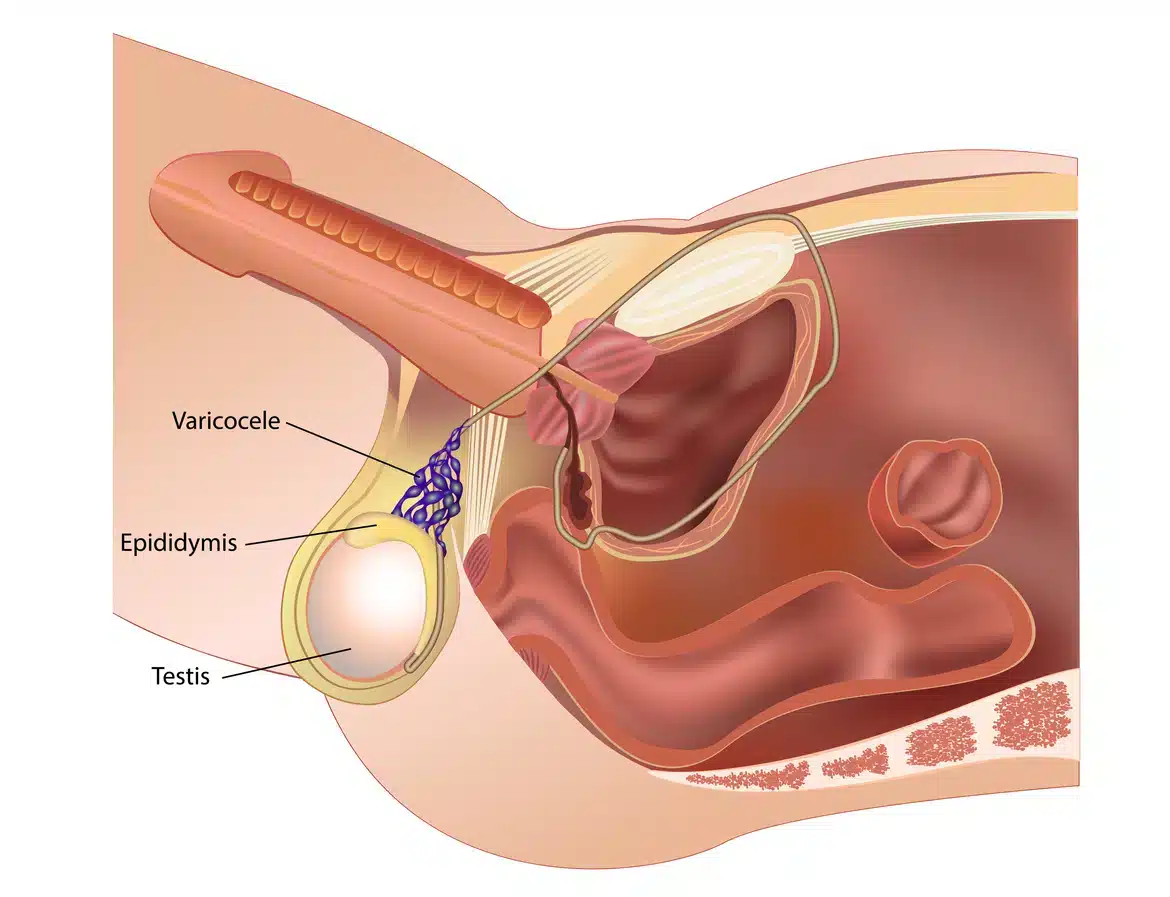Male Varicocele
What is Male Varicocele?
A varicocele is when the draining veins become enlarged inside a man’s scrotum (the pouch of skin that surrounds the testicles). These veins are called the pampiniform plexus, and they are a group of veins that communicate with the testicular veins that are supposed to drain blood from the testicles.
When the valves in the testicular veins malfunction, blood flow can reverse towards the scrotum resulting in enlargement of the veins. For many men this is asymptomatic, but some varicoceles are associated with infertility, pain, and swelling.

Common Symptoms of Male Varicocele:
Engorged veins surround one or both testicles (more commonly on the left), thereby raising testicular temperature. Testes need a certain body heat that is below our core body heat for optimal sperm production, maturity, and function. Unfortunately, an increase in temperature can result in infertility.
Varicoceles form during puberty. They can grow larger and can become increasingly more noticeable over time. Often, varicoceles are harmless, but some males experience pain and swelling, reduction in size of the affected testicle, and possibly infertility.
Common Symptoms of Male Varicocele:
Engorged veins surround one or both testicles (more commonly on the left), thereby raising testicular temperature. Testes need a certain body heat that is below our core body heat for optimal sperm production, maturity, and function. Unfortunately, an increase in temperature can result in infertility.
Varicoceles form during puberty. They can grow larger and can become increasingly more noticeable over time. Often, varicoceles are harmless, but some males experience pain and swelling, reduction in size of the affected testicle, and possibly infertility.
Out of 100 males, up to 15 have varicoceles!
What are common causes of Male Varicoceles
Male varicoceles have several causes. The valves in the veins may not work well (or may be missing). If blood flow is compromised, the blood may reverse direction and pool in the veins surrounding the testicle(s). The testicular veins draining blood from the testicles towards the heart are connected differently on the left and right side. More pressure is needed on the left side to keep blood flowing through the veins towards the heart. If blood flows backwards or pools in the veins, pain and swelling can occur, and alterations in scrotal temperature may result in infertility. In rare occurrences, swollen lymph nodes or other masses in the abdomen or pelvis may obstruct the flow of blood.
Out of 100 males, up to 15 have varicoceles. Predicting which of these 15 men will have pain, swelling, or fertility problems is difficult to determine. Approximately 4 in 10 men tested for fertility problems have a varicocele and decreased sperm movement. There does not appear to be an associated link between birth defects, race, place of birth, or ethnic group. Although varicoceles are often found in men tested for infertility, 8 out of 10 men who have a varicocele will not experience fertility problems.

Male Varicoceles Diagnostic Testing


